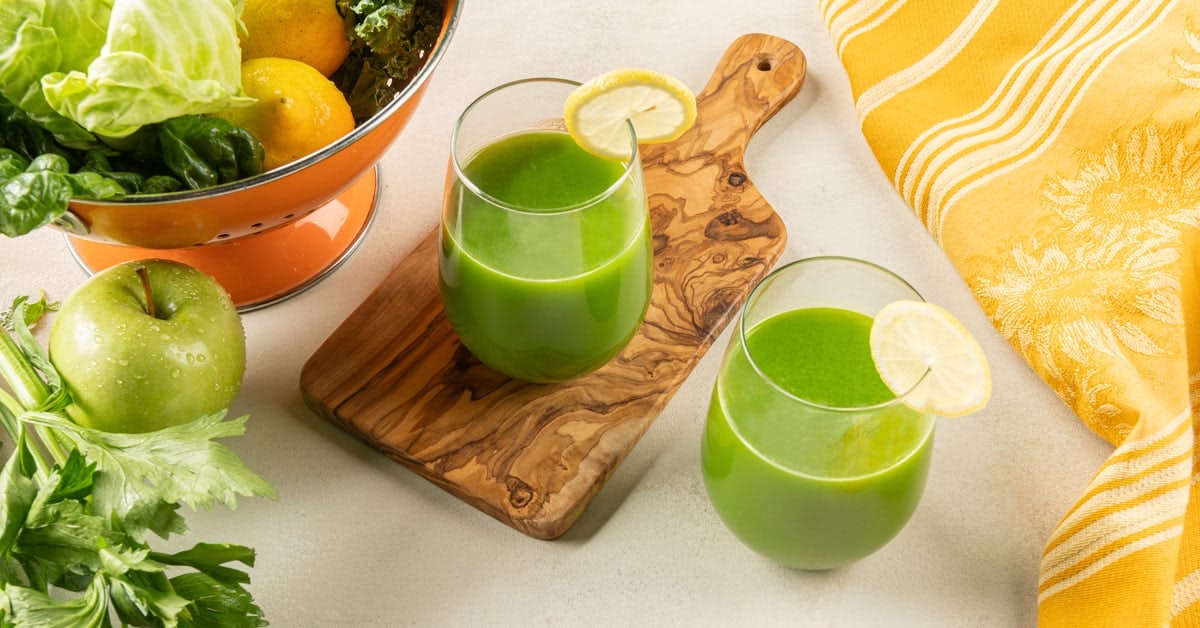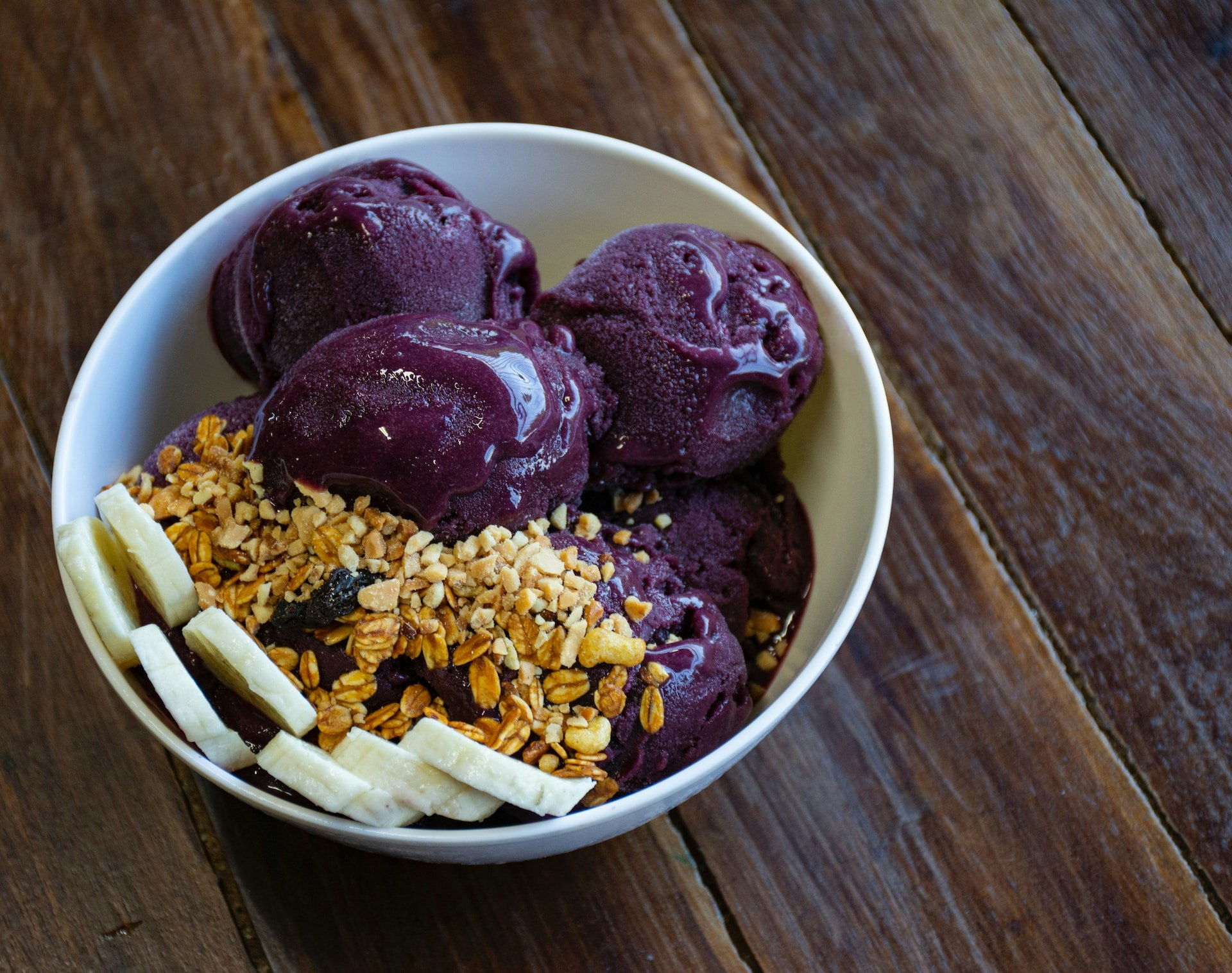
Top 5 Health Benefits of Açai Berries
Açai berries are a popular superfruit with loads of health benefits, including their antioxidant and vitamin C content. These small fruits with a deep purple color are indigenous to the Amazon rainforest in South America. In recent times, they have become increasingly popular due to their promising health advantages. Although research on açai berries is still in progress, this article will outline the five main potential health benefits that can be obtained from consuming them. 1. High Antioxidant Content Açai berries contain high levels of antioxidants, specifically anthocyanins and flavonoids. These powerful antioxidants play a crucial role in counteracting harmful free radicals within the body, which have the potential to induce oxidative stress and harm cells. Through the reduction of oxidative stress, açai berries can potentially enhance overall health and decrease the likelihood of developing chronic illnesses such as heart disease and cancer. The abundance of antioxidants in açai berries, particularly anthocyanins which give them their purple hue, helps combat the harmful effects of free radicals that hasten cellular aging and deterioration within the body. Consuming foods with high levels of antioxidants, like açai berries, could potentially play a role in the prevention of Alzheimer's disease. The impact is two-fold: the antioxidant properties counteract the harmful effects caused by free radicals, thereby minimizing oxidative stress, and it also decreases the build-up of beta-amyloid protein, a significant contributor to this particular form of dementia. These findings were derived from research conducted at Australia's University of Adelaide. 2. Heart Health Consuming açai berries may have a beneficial impact on the health of our hearts. The presence of significant amounts of anthocyanins in these berries has been associated with the reduction of inflammation and improvement in cholesterol levels. Research indicates that incorporating açai berry products into our diet regularly can potentially decrease levels of LDL (“bad”) cholesterol, while simultaneously increasing HDL (“good”) cholesterol, thus providing support for cardiovascular well-being. A study conducted at the Federal University of Pará, located in the birthplace of açai in Brazil, has provided evidence to support this claim. The study involved two groups of guinea pigs: one group consumed the fruit-based drink while the other did not. After a period of 12 weeks, the researchers made an interesting observation: the first group experienced a reduction in LDL cholesterol (also known as “bad” cholesterol), whereas no such change was noticed in the second group. This positive outcome can be attributed to two key components abundantly found in açai: phytosterols and anthocyanins. Phytosterols compete with cholesterol during digestion, effectively reducing its absorption into harmful molecules. On the other hand, anthocyanins combat LDL oxidation which helps prevent plaque formation within blood vessels. In addition to their ability to combat bad cholesterol, which is beneficial for heart health, açaí berries contain compounds that aid in the prevention of atherosclerosis – the hardening of blood vessels. These compounds also contribute to the regulation of high blood pressure and enhance blood circulation. A study published in the scientific journal Atherosclerosis, affiliated with the European Society of Atherosclerosis, confirmed these findings. 3. Boosts Immune System Like several other types of berries, Açai berries are packed with a variety of vitamins and minerals, such as vitamin C, which plays a crucial role in maintaining a strong immune system. Vitamin C acts as an antioxidant that aids the body in fighting off infections and diseases. By including açai berries in your diet, you can enhance your immune system and support overall health and wellness. 4. Improved Skin Health The skin can also reap the rewards of açai berries' antioxidant properties. These substances play a crucial role in shielding the skin against harm caused by free radicals, such as those from UV rays and pollution. As a result of their potential to support skin rejuvenation, diminish signs of aging, and maintain a radiant appearance, some skincare products incorporate extracts from açai berries. According to the journal Phytochemistry Letters, açai berry powder possesses antioxidant properties that can potentially benefit skincare. Cosmetic products often incorporate açai oil due to its high antioxidant content, which can alleviate irritation, redness, and provide moisturization for the skin. Furthermore, consuming açai berries may result in vibrant and radiant skin. In fact, in Brazil, the pulp of these berries has been utilized for generations to address various skin conditions and diseases with great effectiveness. 5. Potential Weight Management Although further investigation is necessary, the substantial fiber content and low glycemic index of açai berries may play a role in enhancing feelings of fullness and promoting stable blood sugar levels. Consequently, incorporating açai berries into a well-balanced diet could potentially assist in appetite regulation and contribute to weight management endeavors. Several studies have indicated that there may be potential benefits of açai berries when it comes to weight management. According to a research study, incorporating açai berries into your diet for a month can potentially lead to decreased fasting insulin and glucose levels, along with lowered total cholesterol levels. Furthermore, the abundant fiber content of these berries may aid in curbing appetite and alleviating hunger pangs that are often linked to overindulgence and weight gain. It's important to note, while açai berries themselves are naturally sugar-free, commercially available açai bowls are typically high in sugar due to sweetened additives. Conclusion Açai berries offer numerous health benefits that make them a valuable addition to any diet. With their impressive range of health benefits, it's no wonder that açai berries have gained popularity as a superfood. Incorporating these berries into your diet can promote optimal health and contribute to a well-rounded, nutritious lifestyle.

Is Acai Healthy & Safe During Pregnancy?
Acai berries, whether fresh or frozen, are safe to eat during pregnancy. However, if you are allergic to berries, pollen or other fruits, it is best to check with your doctor to confirm they are safe for you.

The Origin of Açaí: Where Does It Come From?

How to Thicken an Açai Bowl Base
The best option to thicken an açai bowl base is frozen banana, but there are many other options that can work. Açai bowls are widely loved and are often consumed as breakfast or a snack (though they can oftentimes be more of a dessert). Usually, they feature a dense foundation of açai berries blended with other fruits, nuts or vegetables, and topped with an assortment of fruits, nuts, seeds, and granola. How to Thicken an Açai Bowl Base To achieve a thicker base for your açai bowl, you can blend your base with the following options: 1. Frozen Açai Purée: The key component of an açai bowl is the frozen açai purée, which consists of açai berries. These frozen purée packs are readily available in numerous grocery stores or can be purchased online. Once blended, the frozen açai purée lends the bowl a rich and velvety consistency, creating a delightful texture. However, adding the ingredients below will lead to a thicker and more dynamic bowl base. 2. Frozen Banana or Mango: By incorporating frozen bananas or mangoes into the açai blend, not only do they enhance the thickness of the mixture, but it also contributes natural sweetness. Additionally, both banana and mangoes impart a smooth and velvety consistency to the bowl, enhancing its overall taste and texture. 3. Chia Seeds: When chia seeds are incorporated into the açai base, they can absorb a significant amount of liquid and form a gel-like texture. This gradual absorption process helps in thickening the mixture as the seeds soak up the liquid content. 4. Greek Yogurt: By including Greek yogurt in the açai mixture, not only does it make the base thicker, but it also contributes creaminess and enhances the protein level of the bowl. 5. Frozen Berries: To increase the consistency of the açai bowl and incorporate additional flavors and nutrients, one can consider incorporating other frozen berries such as blueberries, strawberries, or blackberries. These berries taste great with the flavor of acai. 6. Nut Butters: You can enhance the smoothness and thickness of the açai base by incorporating almond butter, peanut butter, or any other type of nut butter. 7. Silken Tofu: For a dairy-free creamy option, consider using silken tofu as a substitute. This will give the bowl a creamy texture and provide an additional source of protein. 8. Coconut Cream: To enhance the açai base, simply incorporate a dollop of coconut cream. This not only enriches the flavor with tropical notes but also adds thickness to the mixture. 9. Oats or Oatmeal: If you desire a more substantial consistency, you have the option to incorporate rolled oats into the mixture. This will not only enhance fiber content but also provide additional nutrients. 10. Aloe Vera Gel: To enhance the consistency and provide a distinct, revitalizing flavor to your açai bowl, incorporate aloe vera gel. Opt for food-grade gel that is free of any taste or aroma. To create your açai bowl, you have the freedom to explore various combinations of ingredients to achieve your preferred consistency and flavor. Begin with modest quantities and make adjustments according to your personal preference. Moreover, incorporating a small portion of liquid, such as coconut water or almond milk, can facilitate the blending process. However, exercise caution not to overdo it with the addition of liquid as this may result in a diluted base.

How Much Sugar Is In An Açaí Bowl?
While açaí berry purée is sugar-free, açaí bowls typically have around 65 grams of sugar due to the other fruits and ingredients blended in.
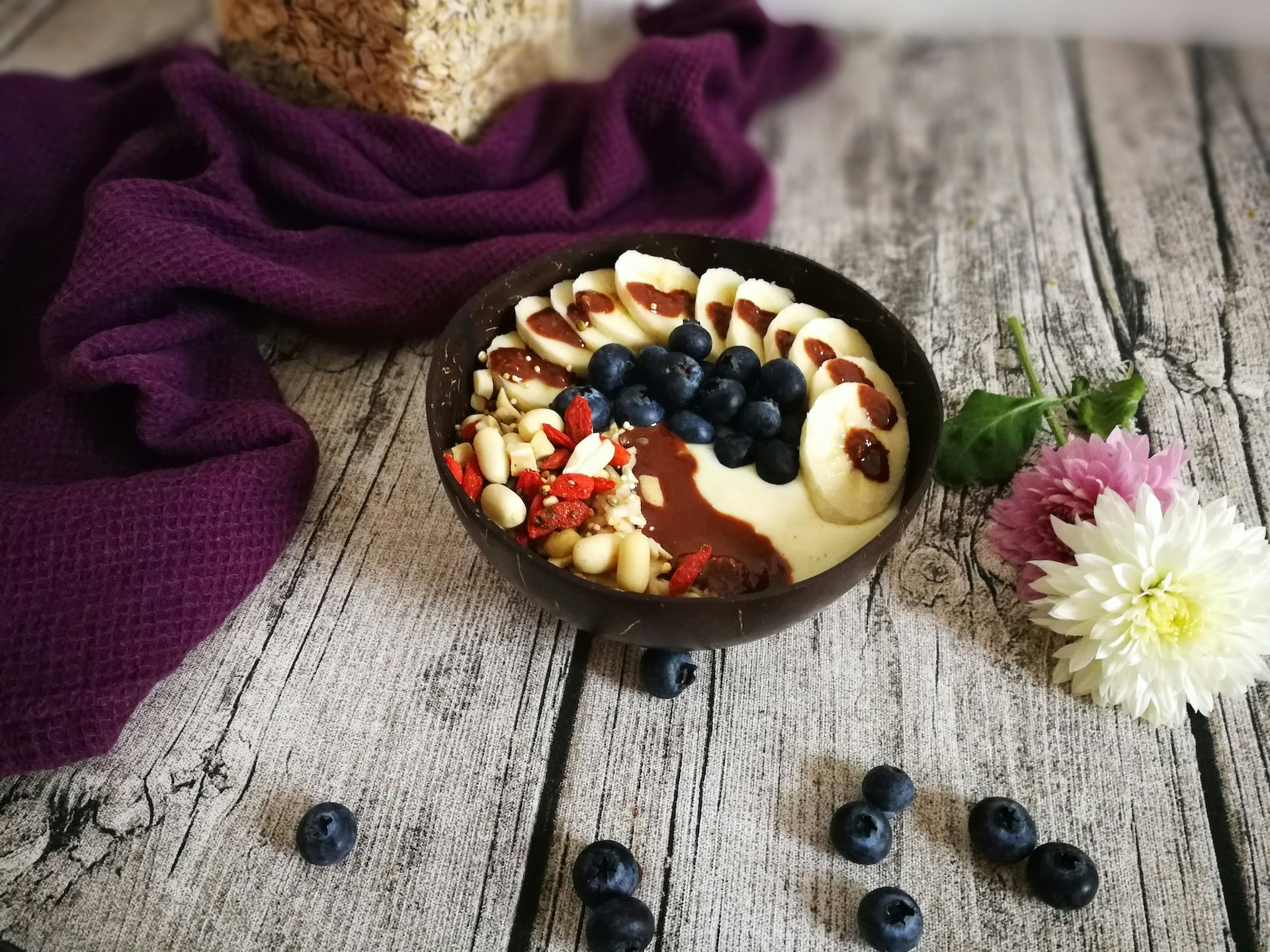
How to Store Açaí Bowls & Smoothies
Açaí bowls can be stored in both the fridge or freezer, depending on when you plan to consume it. They should not be stored with the toppings, which will get mushy quickly. Growing in clusters atop the açaí palm, this small but mighty purple berry holds great significance for generations of indigenous people in the Amazon region who have relied on açaí as a fundamental component of their diet. In Brazil, it is customary to consume fresh açaí berries on the day they are harvested or to preserve them by pulping and freezing. The taste of this remarkable fruit is often likened to an enchanting blend of berries and chocolate, offering a truly unique flavor experience. Modern technology and transportation have made it possible for us to enjoy açaí berries globally. The raw fruit needs to be processed and frozen within 24 hours of being picked, and its high demand across the world is attributed to its natural antioxidants and vitamin content. How to Store Açaí Bowls – Fridge or Freezer? Determining the best storage option for your açaí bowls and smoothies depends on several factors. However, never opt for storing it at room temperature! Refrigerator: If you intend to enjoy your açaí bowl within an hour or less, you can refrigerate it. After blending, transfer the açaí bowl into an airtight container and place it in the fridge for optimal preservation of its freshness and flavors, without it being affected by other items in the fridge. This also works for purchased açaí bowls. However, there are downsides to solely using the fridge. Açaí bowls are meant to be eaten nearly frozen, and even refrigerated, the base will begin to melt quickly. Recommended method - Freezer to Fridge: If you've blended your own açaí bowl, or have purchased one, but don't plan to eat it right away, here is what is going to lead to the best texture and flavor. Freeze your bowl, and put it in the fridge 30 minutes or an hour before you plan on eating it. This will ensure that the base isn't too liquidated or too solid. Freezer: Açaí bowls and smoothies can be stored frozen for up to 3 months. To keep your açaí bowl frozen, it is important to utilize a freezer-safe container. This will safeguard against freezer burn and preserve the freshness of your bowl. Additionally, using containers with secure lids and clear labeling can aid in keeping your storage organized, especially when you have multiple açaí bowls stored. Lastly, be sure to leave room for expansion as the contents may expand during freezing. What About the Toppings? It is not advisable to store your açaí bowl with toppings in the fridge or freezer, as they will become mushy. To ensure the freshness of your toppings, it is recommended to separate them from the açaí base when storing. Keep the açai base in one container and the toppings in another, assembling them just before consumption. In addition, it is not recommended to store açaí bowls containing leafy greens and dairy products, as these ingredients will cause browning within a few hours. This phenomenon occurs due to enzymic browning, where fruits and vegetables oxidize when exposed to air and lose some of their nutrient content. Therefore, for optimal enjoyment and nutritional value, it is best to consume these açaí bowls immediately after preparation. Can You Re-Freeze Açaí Bowls? The answer is yes, but with caution, and it is not recommended for the best taste and texture. Nonetheless, it is crucial to refrain from refreezing açaí bowls that have been left out at temperatures higher than 39°F for an extended period of time as this can lead to bacterial contamination. To ensure food safety, it is advisable not to refreeze açaí bowls after 2–3 days have passed since its initial thawing. Following these precautions will help avoid any potential issues associated with the consumption of improperly stored or contaminated Açaí bowls and smoothies.

Top 10 Benefits of Drinking Grapefruit Juice
Grapefruit juice has a distinctive fresh but bitter flavor, and a ton of health benefits that make it a smart choice for anyone's diet. Full of important vitamins and minerals, grapefruit juice can help give your immune system a boost, keep your heart healthy, aid in digestion, and even help with weight loss. In this article, we'll take a look at all the perks of drinking grapefruit juice and how it can improve your overall well-being. So, whether you love its tangy flavor or you're just trying to get healthier, grapefruit juice might be exactly what you need. Let's jump into all the great reasons to make this citrusy treat a part of your daily routine. Origins of Grapefruit Grapefruit is a citrus fruit that has a taste that can vary from slightly bitter to tangy and mildly sweet. It was created in the 18th century by cross breeding a pomelo with an orange. The fruit that grows on grapefruit trees looks nothing like grapes. It has a yellow or slightly pinkish skin with pulp that can be yellow, pale pink, or deep red. If you see grapefruit growing on a tree, you'll notice that they grow in bunches. It's believed that these clusters resemble the shape of large yellow grapes; hence the fruit being called a grapefruit. Grapefruit trees are grown in various regions of the United States, Israel, Cuba, Mexico, Argentina, and Southern Africa. However, the grapefruit we know today might have developed from a hybrid that originated in Jamaica. It gained popularity in the West Indies before making its way to the United States. It is believed that Florida was the first state to commercially grow grapefruit after its initial stint as a novelty plant. Nowadays, grapefruit can also be found in other warm subtropical areas like Texas, Arizona, and California. The Different Types of Grapefruit There are many different grapefruit varieties, but here are the five types you are most likely to come across: White grapefruit: If you're into the tangy taste of grapefruit rather than the sweet, then you might want to give white grapefruit a try. It has a creamy yellow skin on the outside and a vibrant citrus aroma with a sour rather than sweet taste on the inside. Pink grapefruit: When it comes to juicing, the pink grapefruit is everyone's favorite because it's a blend of white and red grapefruit. It's the most enjoyable of all grapefruit varieties, with a deliciously tangy sweetness. Red grapefruit: If you prefer a sweeter taste, go for red grapefruit. The redder the flesh, the sweeter the flavor and the more antioxidant lycopene it contains. However, it's the least complex in taste and can still be quite bitter. Pomelo grapefruit: The Pomelo is a combination of oranges and pomelos, resulting in a unique variety. They're large, yellow or lime green in color, with a mellow flesh and a thick, bitter peel that's easy to peel. They're great for adding to salads. Oro Blanco: One of the lesser-known grapefruit varieties is Oro Blanco, which means white gold. It has super sweet flesh with hardly any bitterness and is protected by a thick green or lemon yellow skin. Benefits of Drinking Grapefruit Juice Grapefruit is a tasty fruit that adds a burst of flavor to desserts, cocktails, and of course, as a juice. Plus, there are plenty of scientific studies that back up the various health benefits of grapefruit juice. Let's dig in and discover all the amazing ways grapefruit juice can benefit our health: 1. Nutrient Rich When it comes to the nutrients in grapefruit juice, it's important to understand why cold-pressed juice is a better choice than pasteurized juice. Here's the deal: when commercial juices go through pasteurization, some of the heat-sensitive nutrients like vitamins and enzymes may break down, which can lead to a loss in nutritional value compared to fresh juice. Furthermore, commercial juices often have added sugars, and they lack fiber. On the flip side, cold-pressed juice is known to preserve more of the natural vitamins, minerals, and enzymes found in fresh grapefruit since it skips the high-temperature pasteurization process. Plus, if you keep some of the pulp, the fiber content can be almost as high as in the whole fruit. Fresh grapefruit juice provides a decent amount of fiber, in addition to more than 15 beneficial vitamins and minerals. Here are the stars of the show: Fiber Grapefruit juice with pulp is a great source of fiber, which has several benefits for your health: It can support your heart health by reducing inflammation and managing high blood pressure. Fiber promotes a healthy gut by preventing constipation and promoting the growth of good bacteria. It can help maintain healthier cholesterol levels by keeping LDL cholesterol in check. If you're looking to manage your weight, fiber can help you feel fuller for longer, so you can be satisfied with smaller portions. Vitamin C Grapefruit juice, just like oranges and tangerines, is packed with vitamin C. This essential nutrient helps with protein metabolism, wound healing, collagen maintenance for youthful skin, nerve communication, muscle movement, and keeping our heart healthy. Vitamin A Grapefruit juice has an added advantage compared to other citrus fruits—it contains a significant amount of vitamin A, also known as beta carotene. While an orange only provides around 4% of the recommended daily intake of vitamin A, the juice of a whole grapefruit can give you over 50% of what you need. Vitamin A is crucial for maintaining good eye health and, similar to vitamin C, it strengthens the immune system and aids in preventing inflammation. There’s more! Did you know that grapefruit juice provides around 10% of your daily potassium needs and about 8% of the thiamine and folate requirements? Grapefruit juice also contains lycopene, a powerful antioxidant, also found in tomatoes and watermelon. These antioxidants play a crucial role in protecting our cells from damage and might even help lower the risk of diseases like cancer. So, enjoy your glass of grapefruit guilt-free and reap all the health benefits it has to offer. 2. Hydration Benefits Grapefruits are super juicy, and you know why? They're loaded with water. Out of all the fruits out there, the grapefruit has one of the highest water contents. Just one cup of pink or red grapefruit sections contains about 203 grams of water, which is almost a full cup. Having that much water is great for your overall health. Your body is made up of about 60% water, so it needs hydration to stay in tip-top shape. Plus, staying hydrated helps prevent issues like constipation, kidney stones, and UTIs. So, adding grapefruit juice to your diet can help you meet your fluid goals. And remember, go for the heavier grapefruits, as they have more water in them. 3. Rich in Antioxidants Antioxidants have been a hot topic for over 50 years now, but it's only been in the past two decades that scientists really started understanding their role in diseases. When you drink antioxidant-rich juices, you're actually lowering your risk of developing a bunch of different diseases. How? Well, antioxidants protect your body's cells from damage caused by these things called free radicals. Free radicals are these unstable molecules that can wreak havoc in your body and can lead to all sorts of health problems like autoimmune disorders, cancer, rheumatoid arthritis, neurodegenerative diseases, and even heart issues. Here are some antioxidants found in grapefruit: Vitamin C helps protect your body's cells from damage that can lead to cancer and heart disease. Lycopene is known for preventing certain types of cancer, like prostate cancer, and may also slow tumor growth. (More prevalent in red and pink grapefruits) Beta-carotene converts to vitamin A in the body, which can help lower the risk of chronic conditions like cancer, heart disease, and eye problems. (More prevalent in red and pink grapefruits) Flavanones have anti-inflammatory properties that can lower cholesterol levels and blood pressure, reducing the risk of heart disease. 4. Grapefruit Juice is Weight-Loss Friendly Grapefruit juice can actually help with weight loss because it has a reasonable fiber content, which makes you feel full and reduces calorie intake. It is also low in calories but high in water, which is great for weight loss. In fact, it’s one of the lowest-calorie fruits, with only 52 calories in a medium sized grapefruit. Studies have shown that consuming grapefruit or grapefruit juice can lead to weight loss, with one study finding that daily grapefruit consumption helped reduce waist size. However, it's important to note that there weren't any significant differences in waist size reduction between those who drank water, ate grapefruit, or drank grapefruit juice. So while grapefruit alone may not cause weight loss, incorporating it into a balanced diet can be beneficial. 5. Grapefruit Juice May Reduce Kidney Stones Risk Drinking grapefruit juice can help lower your chances of getting kidney stones. Kidney stones occur when there's a buildup of waste materials in the kidneys. Normally, these waste materials are filtered out through urine. However, when they crystallize in the kidneys, they can turn into stones, causing severe pain if they're large enough to block the urinary system. The most common type of kidney stone is calcium oxalate, and consuming citric acid, which is naturally found in grapefruit, can sometimes prevent them. Citric acid binds with calcium in the kidneys and helps flush it out of the body, reducing the risk of stone formation. Additionally, citric acid can increase urine pH and volume, creating an unfavorable environment for kidney stones to form. 6. Grapefruit Juice Can Improve Heart Health Did you know that drinking grapefruit juice can actually boost your heart health? It's true! By consuming grapefruit, you can lower your cholesterol levels and blood pressure, which is great news for your heart. In fact, a study found that individuals who had grapefruit three times a day for six weeks experienced a significant decrease in their blood pressure. Not only that, but their “bad” LDL cholesterol levels and total cholesterol also improved. The secret behind grapefruit's heart-healthy benefits lies in its rich potassium content. Just half a grapefruit can provide you with up to 5% of your recommended daily allowance of this mineral. And getting enough potassium is crucial for reducing the risk of high blood pressure. But that's not all. Grapefruit is also packed with fiber, which has been linked to lower cholesterol levels and blood pressure. By increasing your fiber intake, you can further improve your heart health. By incorporating grapefruit juice into your diet, you can significantly lower your chances of developing heart disease. Plus, the antioxidants and fiber in grapefruit can even help protect against strokes. So, why not give grapefruit juice a try and give your heart a little extra love? Your ticker will thank you! 7. Grapefruit Juice may Help Prevent Insulin Resistance and Diabetes Are you aware that sipping on some grapefruit juice could potentially help keep diabetes at bay? It turns out that regularly drinking grapefruit juice might have the power to prevent insulin resistance, which is a condition that can lead to diabetes. Insulin resistance happens when your cells stop responding to insulin, a hormone that plays a crucial role in your body's processes, especially in controlling blood sugar levels. When you have insulin resistance, your insulin and blood sugar levels tend to spike, increasing your risk of developing type 2 diabetes. But here's where grapefruit juice comes in—by drinking it, you might be able to regulate your insulin levels and decrease your chances of becoming insulin resistant. There was even a study where people who ate half a fresh grapefruit before meals experienced significant reductions in both insulin levels and insulin resistance compared to those who didn't have any grapefruit. Pretty cool, right? On top of that, eating fruit and sipping on fruit juice in general has been linked to better blood sugar control and a lower risk of type 2 diabetes. So, next time you're in the mood for a refreshing beverage, why not reach for some grapefruit juice? It could be a tasty way to potentially keep diabetes at bay. 8. Grapefruit Juice Can Boost Your Immune System Drinking grapefruit juice or munching on some grapefruit can do wonders for your immune system. One of the reasons why grapefruit is so awesome is because it's loaded with vitamin C, a major supporter of the immune system. But wait, there's more! Vitamin C also speeds up recovery time when we're battling the common cold. So next time you're feeling under the weather, reach for some grapefruit juice to give your immune system an extra boost. And that's not all grapefruit has to offer. It's also packed with vitamin A, which helps fight off infectious diseases and reduces inflammation. Talk about a double whammy. Grapefruit juice is also a good source of zinc, B vitamins, iron, and copper? These nutrients team up to make your immune system stronger and keep your skin healthy. After all, your skin is your body's first line of defense against infections. 9. Grapefruit Juice Can Boost Skin health Did you know that grapefruit juice can do wonders for your skin? It's packed with vitamin C, which works wonders in protecting your skin from sun damage, aging, and inflammation. In fact, vitamin C is often found in serums that help heal the skin, fade dark spots, and make your skin smoother. But here's the best part – studies have shown that increasing your intake of vitamin C through foods like grapefruit can also help with hyperpigmentation, discoloration, and those pesky signs of aging. How? Well, vitamin C boosts collagen production, which in turn improves skin hydration and reduces wrinkles. So, if you're looking for a natural way to enhance your skin, grab a glass of refreshing grapefruit juice and let it work its magic! 10. Grapefruit Juice Can Improve Your Mood Guess what? Drinking grapefruit juice can actually boost your mood? It's true! Grapefruit contains special plant chemicals, like limonoids and flavonoids, that have been linked to potential mood-enhancing effects. These compounds can help keep your brain's neurotransmitters, like serotonin and dopamine, in balance, which is crucial for regulating your mood. In fact, a study published in the American Journal of Clinical Nutrition discovered that beverages rich in flavonoids, such as orange and grapefruit juice, can actually lower your risk of depression as you get older. This is because these compounds can help fight against neuroinflammation and protect your brain cells from damage. So, if you're feeling down, why not give grapefruit juice a try? It might just give your mood a little pick-me-up. Side Effects and Health Risks of Drinking Grapefruit Juice Although drinking grapefruit juice itself isn’t dangerous, in certain circumstances, for example, if you drink too much of it, it may pose health risks. Tissue damage: If you consume too much vitamin C from grapefruit, it can potentially cause tissue damage over time, as per the National Institutes of Health (NIH). It's important to note that vitamin C is generally safe in normal amounts, but going over the recommended daily intake consistently for a prolonged period can negatively impact your body. In addition, excessive levels of vitamin C can result in digestive problems like diarrhea, nausea, cramps, and other minor gut issues. Tooth damage: Eating too much grapefruit or drinking grapefruit juice can cause tooth damage. The acid in citrus fruits can harm your enamel. To protect your teeth, the American Dental Association (ADA) suggests rinsing your mouth with water right after eating acidic foods like citrus fruits. It's also recommended to wait for an hour before brushing your teeth after consuming acidic foods, as your saliva helps protect them. Medication Interactions: Did you know that grapefruit and its juice can actually mess with your medications? It's true! Grapefruit contains a substance that can interfere with how some medications are absorbed by your body. So, if you're taking medication, be careful about drinking grapefruit juice with it. The U.S. Food and Drug Administration (FDA) warns that this combo can make your medication less effective. In a Nutshell To sum it up, drinking grapefruit juice has a bunch of perks for your health and well-being. It's packed with vitamin C, which gives your immune system a boost. The antioxidants in the juice also help reduce inflammation and prevent long-term illnesses. Plus, grapefruit juice is a great way to stay hydrated and shed some pounds since it's low in calories and high in fiber. Not only that, but regularly enjoying grapefruit juice can improve digestion and support healthy skin. So, why not add some grapefruit juice to your daily routine? It's a simple and effective way to support your overall health, and it tastes refreshing too!

Top 10 Benefits of Drinking Orange Juice
Orange juice isn't just delicious, it's also jam-packed properties that can benefit your health. With loads of vitamin C, antioxidants, and other key minerals, orange juice has been known to give a major boost to overall wellness. In this article, we're gonna break down all the reasons why drinking OJ regularly can be good for you. From beefing up your immune system to keeping your heart healthy and helping out with digestion, there are many perks to drinking orange juice. Origins of Citrus Fruits Oranges were first grown in India, Southeast Asia, and China around 2500 B.C. The Romans were also big fans of oranges and brought young trees over from India to Italy way back in the first century A.D. Fast forward a bit and Christopher Columbus himself planted orange orchards in Haiti after buying some seeds in 1493. Soon enough, Panama, Mexico, and even Brazil got in on the orange-growing action. Did you know that the US didn't start growing oranges until 1513 when Spanish explorer Juan Ponce de Leon planted the first orange trees? Pretty wild, right? Citrus made its way to Charleston, South Carolina, and Savannah, Georgia in the mid-1700s, and by 1790, America was exporting 3000 gallons of orange juice. Benefits of Drinking Orange Juice Let's look at all the amazing benefits of this citrus superstar. 1. Orange Juice is Rich in Nutrients Orange juice is rich in several important nutrients, including vitamin C, folate, and potassium. In an 8-ounce (240-ml) serving of orange juice, you’ll find approximately: Calories: 110 Protein: 2 grams Carbs: 26 grams Vitamin C: 67% of the Reference Daily Intake (RDI) Folate: 15% of the RDI Potassium: 10% of the RDI No caffeine! 2. Orange Juice can Promote Heart Health Studies have shown that vitamin C, which is found in oranges, can help prevent heart disease. It keeps your cholesterol levels low and prevents the build-up of “bad” cholesterol in your arteries, which can lead to heart disease. Plus, the vitamin C also helps to prevent blood from clotting, reducing the risk of a heart attack. And don't forget about the potassium in oranges – it can help lower your blood pressure and reduce the risk of cardiovascular diseases. Another cool thing about orange juice is that it contains Vitamin B9 and folate, which can help promote blood circulation and purification by assisting in the production of red blood cells. Last but not least, there's hesperidin, a flavonoid found in oranges that helps maintain well-oxygenated blood flow. So, go ahead and enjoy a nice glass of orange juice – your heart will thank you for it! 3. Orange Juice Contains Antioxidants Orange juice has loads of antioxidants. Antioxidants are important because they keep your body safe from free radicals that can cause illnesses. The antioxidants in orange juice that can protect you from serious illnesses like cancer and heart disease. Some antioxidants in orange juice include hesperidin, which helps your blood vessels work better, and carotenoids, which are great for your immune system. 4. Orange Juice Can Assist with Weight Maintenance You know what's a great way to curb those pesky sweet cravings while getting a dose of vitamins and minerals? Orange juice! It's been a go-to for weight loss programs thanks to its low glycemic index and little fat content. But, watch out for the processed stuff as it can have a lot of added sugars. Stick to about 1/3 to 1 cup of pure orange juice for best results. Did you know that the fiber in oranges can keep you full? That means less snacking and more weight loss potential. But, if you want to get the most out of that fiber, go for cold-pressed or freshly squeezed orange juice with pulp. The pasteurized, store-bought stuff just won't be as effective. 5. Orange Juice May Prevent Kidney Diseases You know those mineral deposits called kidney stones that can form in your kidneys and cause agony? Well, turns out orange juice might just be the antidote! A study involving nearly 200,000 participants found that folks who drank orange juice on the regular had a 12% lower risk of getting kidney stones than those who hardly ever sipped on the stuff. Apparently, orange juice is chock-full of potassium citrate, which can up your body's citraturia (AKA citric acid) and increase the alkalinity of your urine. 6. Orange Juice Can Improve Vision Orange juice is a great way to keep your eyes healthy! It's got vitamin A and carotene, which help protect your cornea and improve your vision. Plus, it's packed with carotenoids that help your body fight off bad things and act like antioxidants. Some experts even think carotenoids can help prevent serious eye problems like cataracts and macular degeneration. 7. Orange Juice May Decrease Inflammation Drinking orange juice could be helpful in reducing inflammation, but it's definitely not a magical solution for all inflammatory issues. Orange juice is rich in antioxidants, like vitamin C and flavonoids, which are responsible for its anti-inflammatory effects. Vitamin C has the ability to neutralize harmful free radicals that can cause inflammation and damage cells. On the other hand, flavonoids are bioactive compounds found in citrus fruits that have anti-inflammatory properties. Some studies have suggested that consuming orange juice and other citrus fruits may help decrease inflammation markers in the body, such as CRP and IL-6, which are often connected with systemic inflammation. 8. Orange Juice May Help Lower Cholesterol Did you know that orange juice could actually help lower your cholesterol? It contains compounds like soluble fiber, vitamin C, and flavonoids. Soluble fiber works by binding to cholesterol in your gut, so your body can't absorb it into your bloodstream. And vitamin C helps prevent the oxidation of LDL cholesterol, which can lead to a condition called atherosclerosis. Flavonoids also have an impact on cholesterol levels, helping to improve the ratio of HDL to LDL cholesterol. 9. Orange Juice May Help Treat Anemia We know that oranges are loaded with vitamin C. This nutrient actually helps your body absorb iron, which is super important for your overall health. So, if you want to make sure you're getting the most out of your iron-rich foods, sipping at least one serving of orange juice a day could do the trick. Plus, oranges also contain folic acid, which can help prevent megaloblastic anemia – a blood disorder that can make you feel exhausted. 10. Orange Juice Promotes Skin Health Drinking orange juice has some serious skin benefits. Not only does it give your skin a natural glow, but it also helps cleanse it. Plus, when you have a glass of OJ, you're giving your skin a boost of vitamins E and C. These vitamins help revive skin cells and fight off blackheads and spots. And if you're worried about sunburn, orange juice can help with that too. Carotenoids in orange juice protect your skin from harmful UV rays. In fact, studies indicate that regular consumption of fresh orange juice can increase the concentration of carotenoids in your skin. Bottom Line Orange juice is loaded with antioxidants and vitamins that do all kinds of great things for your body. Drinking it regularly can help with everything from healing to keeping your skin looking awesome, to keeping your heart healthy, and more. Just make sure you check the label if you opt to buy it from the store instead of making it at home. You want to go for 100% fresh cold-pressed orange juice with no added sugar.

Top 10 Benefits of Lemon Juice
Lemon juice has a uniquely tart and zesty flavor, but did you know it's also incredibly good for you? From giving your immune system a boost to helping with digestion, lemon juice offers a lot towards overall well-being. In this article, we'll check out the top 10 benefits of drinking lemon juice and how it can make a positive difference to your health. So, go ahead and squeeze some lemon juice into your water as we uncover the amazing advantages of this citrus wonder. Origins of Lemons Lemons have been around for ages. This yellow, round fruit from the Rutaceae family is scientifically known as a citrus lemon. With its vibrant yellow color, this citrus fruit packs a tangy punch thanks to its high citric acid content. While lemons come in various shapes and sizes worldwide, they originally hail from Assam, Myanmar, and China. Here's a cool tidbit: back in the 1700s, lemons were found to be a game-changer in fighting scurvy. James Lind discovered that lemons were incredibly effective in treating this condition caused by a lack of vitamin C in the body. Health Benefits of Lemon Juice When you're out grocery shopping, you might not give much thought to lemons. But as you're about to learn, lemons pack a serious nutritional punch. Lemons are not only packed with vitamin C, they also contain beneficial nutrients like fiber, calcium, thiamin, pantothenic acid, folate, magnesium, and copper. Plus, they are low in calories. But that's not all! There are even more excellent reasons why you should make lemons a part of your daily diet. 1. Helps Boost Immunity Lemon is a superfruit for boosting our immunity. It's packed with vitamin C and antioxidants, which help strengthen our immune system and fight off those pesky cold and flu germs. If you're feeling under the weather, try a glass of warm water with a little lemon juice and a generous dollop of honey. It's a soothing remedy that can help ease coughs and colds. 2. Supports Heart Health Lemons are pretty great for giving your body a dose of vitamin C and antioxidants. Research shows that these nutrients are good for keeping your heart healthy and can even help prevent heart diseases and strokes. Plus, the fiber in lemons can also have a big impact on reducing the risk factors for heart diseases. Some studies have found that lemon juice also helps keep plaque from building up in artery walls, preventing them from hardening and reducing the risk of high blood pressure, and that drinking lemon juice can actually help lower high blood pressure. So, if you're dealing with that, lemons could be a helpful addition to your treatment plan. Turns out, lemons contain two plant compounds called hesperidin and diosmin, which are known for their cholesterol-lowering properties. 3. Helps With Weight Control If you're looking for a little magic to help with weight loss, try adding freshly squeezed lemon to a glass of lukewarm water along with a tablespoon of honey. This drink can leave you feeling full sooner and for longer thanks to a compound called pectin found in lemons. Pectin is a fiber that expands in your stomach, helping to curb snacking on unhealthy foods and prevent weight gain. Just remember, for the best results, make sure to consume whole lemons or drink cold-pressed lemon juice with pulp, as that's where the pectin is found. While some animal studies have suggested that the antioxidants in lemons can also aid in weight control, clinical trials on humans are still needed to confirm these findings. So, give it a try and see if this lemony concoction works its magic for you! 4. May Improve Digestion Lemons are packed with soluble fibers that keep your bowels moving and enhance digestion. The primary fiber in lemons, called pectin, boosts gut health by speeding up the breakdown of starch and sugar. According to Ayurvedic medicine, starting your day with a glass of water mixed with lemon juice and pulp can jump-start your digestion and promote a healthy digestive system. 5. May Help Prevent and Treat Oral Disorders We all know that vitamin C is super important for maintaining healthy teeth and gums. And guess what? Lemon is packed with vitamin C, making it great for treating oral issues. One such issue is scurvy, a condition caused by a deficiency in vitamin C that leads to swollen and bleeding gums. Lemon juice can actually help relieve the pain of a toothache when applied directly to the affected area. Plus, it has anti-inflammatory properties that can help reduce swelling. So, lemon is definitely a handy remedy for oral problems. 6. Help Reduce Cancer Risks Lemons and lemon juice are packed with vitamin C and antioxidants, which can help combat serious illnesses such as some types of cancer. Research on animals has shown that certain substances found in lemons, like hesperidin, limonene, and naringenin, may have anti-cancer properties. However, more studies involving humans are needed to fully understand these effects. So, while lemons may have potential health benefits, it's important to bear in mind that further research is required. 7. Can Keep High Blood Pressure in Check According to a study that was published in the Journal of Nutrition and Metabolism, incorporating lemons into your daily diet and engaging in 30–60 minutes of brisk walking each day can help regulate high blood pressure. The individuals who consumed lemons experienced a decrease in hypertension symptoms compared to those who did not. 8. Beneficial for skin Lemons have a ton of vitamin C, which is super important for making collagen. Collagen is what makes our skin look all plump and youthful, and it even helps smooth out those pesky fine lines. Plus, it's not just good for your skin—boosting collagen also helps your hair grow by giving your hair follicles a little kick. So, if you want to give your locks some love, try mixing two tablespoons of lemon juice with aloe vera gel. Massage that mixture into your scalp 30 minutes before your shower, and then rinse it out with a gentle shampoo. Easy peasy lemon squeezy. 9. Protect Against Anemia Iron deficiency anemia is pretty common. It happens when you don't get enough iron from the food you eat. Lemons have a little bit of iron, but their main role in preventing anemia is by helping your body absorb iron from plant-based foods. Your body absorbs iron from meat, chicken, and fish (called heme iron) easily, but not so much from plant sources (known as non-heme iron). However, you can improve this absorption by consuming vitamin C and citric acid. Since lemons have both vitamin C and citric acid, they can help protect against anemia by ensuring that you absorb as much iron as possible from your diet. 10. Kidney Stone Prevention Kidney stones are these small lumps that form when waste products crystallize and build up in your kidneys. They're pretty common, and if you've had them before, chances are you might get them again. Now, here's a cool fact: the fresh fruit and lemon juice concentrate have this thing called citric acid in them. And guess what? This citric acid can actually help stop kidney stones from forming! How, you ask? Well, it increases the amount of urine you produce and also changes the pH of your urine, making it a not-so-friendly place for those pesky stones to grow. All you need is just half a cup (that's about 4 ounces or 125 ml) of lemon juice every day, and you've got enough citric acid to prevent those stones from coming back. Potential Side Effects of Drinking Lemon Juice Having too much of anything can be bad for your health, even if it's something as healthy as lemon juice. Going overboard with lemon juice can lead to acid reflux and Gastroesophageal reflux disease (GERD). The acidity in lemon can also worsen canker sores, and some people believe that excessive lemon juice consumption can trigger frequent migraines. So, it's best to enjoy lemon juice in moderation to avoid these potential issues. Bonus Benefit Ddrinking lemon juice has a cool bonus perk. You know the fresh smell and taste of lemon juice? Well, turns out it can boost your mood and energy. The lemony scent has been proven to make you feel happier and less stressed. And get this – the vitamin C and other nutrients in lemon juice help to keep your energy levels up and support your overall vitality. So, go ahead and enjoy that zesty goodness!

Does Lemon Juice Have Carbs? How Much?
Lemon juice is low in carbs, with 5 teaspoons containing about 1.2 grams of carbohydrates and 6 calories. Knowing the carb content of lemon juice is important for people who are watching what they eat or just want to be smart about their food and drink choices. Lemons are pretty much guilt-free when it comes to your diet. They have no fat, no cholesterol, no sodium, no gluten, and they’re low in calories and carbs. Plus, these zesty citrus fruits are packed with phytonutrients that can help keep you healthy and ward off diseases. So go ahead and squeeze some lemon into your life. It's got that tangy, refreshing taste that everyone loves. But it's not just tasty—it's also packed with health benefits. In this article, we'll take a closer look at the carb content of lemon juice, talk about its nutritional value, and see how it fits into different diets. Carb Content of Lemon Juice A serving of 24ml (a little under 5 tsp) of lemon juice only packs 1.2g of total carbs and 6 calories, made up of roughly the same amount of fiber and sugar. It's important to note that lemon juice from the store or a lemon-flavored drink may have more carbs because of added sugars or other additives. Make sure to check the nutrition label to get the real scoop on the carb content. Versatility of Lemons and Their Juice Lemons are famous for giving a kick of flavor, a burst of freshness, and a tangy twist to beverages and dishes. They're the go-to citrus fruit that people use the most. Lemons also come in handy for fancy decorations and enhancing the taste of desserts. You can squeeze them to get the juice, slice them into wedges, or grate them to get that lemony zest. This amazing fruit is packed with vitamin C and you can find them throughout the year. They're a must-have in your kitchen for making salad dressings, adding some zest to seafood recipes, infusing water with a refreshing taste, and so much more. There are many different types of lemons out there. Most of them are bright yellow, but some have a bit of a greenish tint. Fun fact: one of the most popular kinds, the Meyer lemon, isn't actually a true lemon. It's a mix of a lemon and a mandarin or orange. When you go to the store, the lemons you see are probably Eureka, Lisbon, or Bearss lemons. They're the ones that are grown in California, Florida, and Arizona. You can usually find lemons in the grocery store all year long because some growers harvest them year-round, but the best time to get them is in late winter to early spring or summer. How Does Lemon Juice Fit into Different Diets? Lemon juice is often included in many diets because it tastes refreshing and has potential health benefits. One of these benefits is that it contains a relatively low amount of carbs. Now, let's dig into how lemon juice and its carb content play a role in different diets. 1. Low-Carb and Keto Diets Lemon juice is totally cool to add to low-carb and keto diets, which are all about cutting back on carbs. A fluid ounce of lemon juice usually has around 1.2 to 1.5 grams of carbs, mostly from natural sugars. Since lemon juice is pretty low in carbs, you can enjoy it in moderation without messing up your carb limit. 2. Weight Loss Diets Lemon juice is a popular addition to weight loss diets because it can help boost metabolism and improve digestion. The low amount of carbs in lemon juice makes it a great option for those following a calorie-restricted diet. Plus, it can be used to add a natural burst of flavor to water or other drinks without piling on extra calories or carbs. So, if you're looking to shed some pounds, consider adding a splash of lemon juice to your daily routine. It's an easy and tasty way to support your weight loss goals. 3. Diabetic Diets If you have diabetes, it's important to keep an eye on how many carbs you eat to control your blood sugar levels. Lemon juice is okay to include in your diet because it doesn't have a lot of carbs. However, remember to think about the total amount of carbs in your meals and drinks, including any added sugars or mixers, to make sure your blood sugar stays steady. 4. Mediterranean Diets The Mediterranean diet is all about eating lots of fresh fruits, veggies, whole grains, and good fats. Lemon juice is a popular ingredient in Mediterranean cooking because it adds a nice flavor to dishes and dressings. Even though it has some carbs, the Mediterranean diet is flexible enough to include lemon juice without breaking its rules. 5. Intermittent Fasting If you're planning to try intermittent fasting, which involves specific periods of fasting and eating, having a bit of lemon juice during the fasting window may not hinder the benefits of the fast. But, keep in mind that even a small amount of calories can technically break the fast, so it's important to be mindful of what you consume. 6. Balanced Diets Lemon juice is totally fine to add to your balanced diet without worrying about carbs. It tastes super refreshing and can even make you want to drink more water, which is essential for staying hydrated. Plus, lemon juice has loads of vitamin C and antioxidants that are really good for your overall health. So go ahead and enjoy that lemony goodness. Conclusion Although lemon juice itself is low in carbs, some lemon-flavored products like lemonades or lemon desserts can have more carbs because of added sugars or other ingredients. Therefore, it's a good idea to read the labels or make your own versions using fresh lemon juice to have control over the carb content.
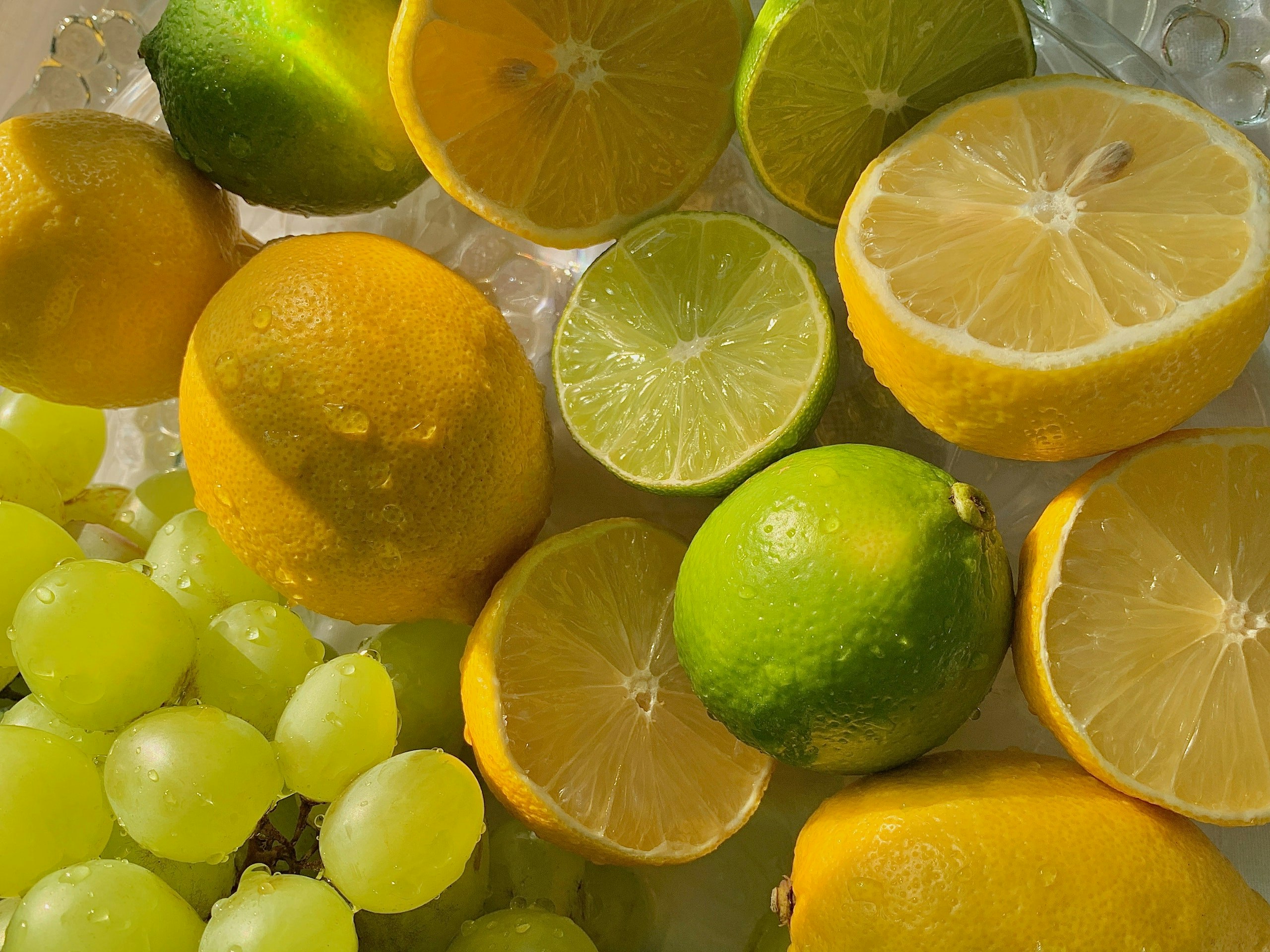
Do Lemon & Lime Juice Have Citric Acid? How Much?
Yes, both lemon and lime juice contain citric acid. This is what gives them their tart, sour taste. Citric acid naturally occurs in citrus fruits like lemons and limes. The amount of citric acid in the juice can be different depending on the type of citrus, the size of the fruit, and how ripe it is. Normally, lemon juice has about 5% to 6% citric acid (1.44g per oz), while lime juice has around 4% to 5% (1.38 grams per oz). These levels may differ depending on the type of lemons and limes you're using. How Much Citric Acid in Lemon Juice vs. Lime Juice Citrus fruits are not just made up of citric acid. Lemons contain other acids like malic acid, ascorbic acid, oxalic acid, tartaric acid, and lactic acid. The same goes for limes, oranges, and grapefruits, but the ratios of these acids may vary. They also have a bit of salt, sugar, and sulphides. When it comes to lemon and lime juice, citric acid is the dominant acid compared to the others. Fresh squeezed or cold-pressed lemon juice contains approximately 1.44 grams of citric acid per ounce. Lime juice, on the other hand, has a citric acid content of about 1.38 grams per ounce. To give you some context, sweet oranges have less than 0.5 gram of citric acid per ounce, while grapefruit has slightly more at just over 0.5 gram per ounce. It's important to note that the citric acid content in commercially available lemon and lime juice products can vary significantly. Taste Difference Between Lemon and Lime Juice Lemon juice and lime juice are both tangy and acidic, but lemon juice is more acidic compared to lime juice. The difference in acidity and taste is because of the different kinds of acids found in each juice. The tartness in lemons gives a sour taste, while the acidic taste of limes is bitter. Both juices can be used for making cocktails and other beverages, but lemon juice is more commonly used in mixed drinks because it is less acidic than lime juice. Health Benefits of Citric Acid in Lemon and Lime Juice The citric acid present in lemon and lime juice contributes to several health benefits. Here are some of the potential health benefits associated with the citric acid found in lemon and lime juice: Kidney Stone Prevention: Citric acid can help reduce the risk of kidney stone formation. It binds to calcium in the urine, inhibiting the formation of certain types of kidney stones. Regular consumption of lemon or lime juice, which are rich in citric acid, can increase urinary citrate levels and promote kidney stone prevention. Digestive Health: Citric acid has been shown to stimulate the production of digestive enzymes, aiding in digestion and nutrient absorption. It can also help alleviate symptoms of indigestion, such as bloating and heartburn. Antioxidant and Anti-inflammatory Effects: Citric acid, along with other compounds found in lemon and lime juice, acts as an antioxidant and exhibits anti-inflammatory properties. These properties help combat oxidative stress, reduce inflammation, and protect cells from damage caused by free radicals. Immune System Support: The citric acid content in lemon and lime juice contributes to their high vitamin C content. Vitamin C (ascorbic acid) is essential for a healthy immune system, as it supports the production of white blood cells and enhances the body's defense against infections. Skin Health: Citric acid can promote skin health by acting as an exfoliant and aiding in the removal of dead skin cells. It can help brighten the skin, improve skin texture, and reduce the appearance of dark spots and blemishes. Possible Negative Health Effects of Lemon and Lime Juice Eating or drinking a lot of raw citrus fruits or juice, particularly limes or lemons, can cause acid reflux, nausea, or discomfort in the stomach. It's important to remember that while lemon and lime juice have some health benefits due to their citric acid content, consuming too much of it or consuming it in concentrated forms can harm tooth enamel. To enjoy the health perks without any negative effects, it's best to have lemon and lime juice in moderate amounts as part of a balanced diet. Additionally, limes are less acidic and are therefore easier on sensitive stomachs. In conclusion, go easy on the citrus and enjoy the goodness they offer!
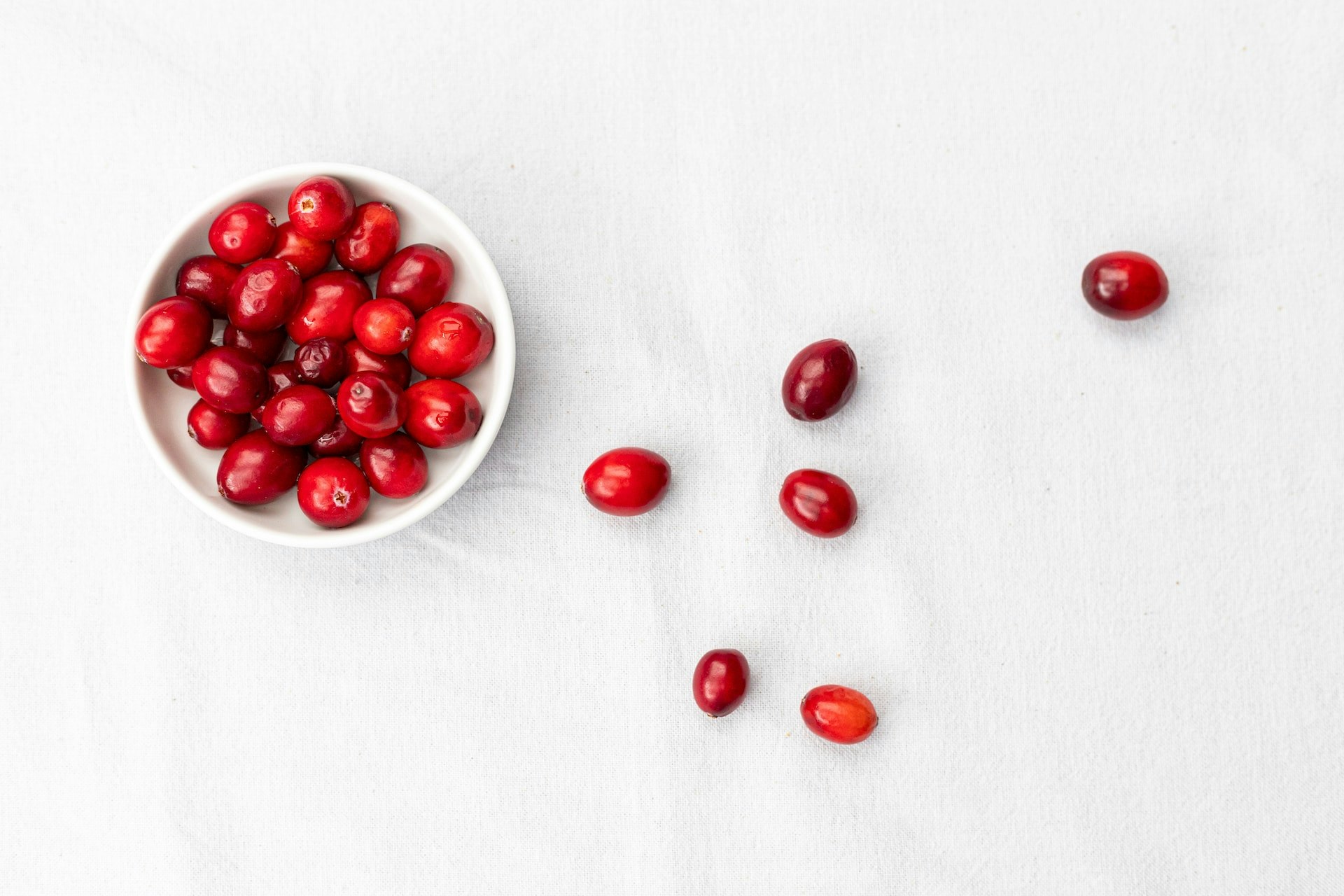
Does Cranberry Juice Have Potassium? How Much?
Yes, cranberry juice contains a small amount of potassium. The average 8 oz serving of store-bought cranberry juice has about 40–50 milligrams of potassium, while 8 oz of cold-pressed cranberry juice typically contains about 120–150 milligrams of potassium. This is only 1% of your daily recommended value for store-bought, and about 2-3% for cold-pressed. Cranberry juice is well-loved juice enjoyed for its unique tart flavor and all the benefits it provides for your health. In this article, we'll discuss how much potassium cranberry juice has, why it's important for us, and how drinking it can help us get the right amount of potassium every day. So, let's take a closer look at the potassium levels in cranberry juice and see how it can be a great addition to a healthy diet. Get ready to uncover the goodness of cranberry juice and how much potassium it has to offer. Does Cranberry Juice have Potassium? Yes, cranberry juice does have potassium, but the amount can differ depending on the brand, how it's made, and what was added to it. As noted, an 8-ounce serving of store-bought cranberry juice has about 40–50 milligrams of potassium, which is less than pure cold-pressed cranberry juice. This is not a significant amount when compared to the daily recommended value. However, it's important to keep in mind that this can vary, so it's a good idea to check the nutrition label of the brand you're drinking for accurate info. If you have specific dietary concerns, it's best to consult a healthcare professional or dietitian for personalized advice. What is Potassium? Potassium is a mineral that can be found in pretty much all the foods we eat. But why is it important? Potassium plays a key role in keeping your body in check. It helps maintain the right balance of fluids and minerals, keeps your blood pressure in check, and even helps your muscles and nerves work properly. What is the Recommended Daily Intake of Potassium? How much potassium do you really need to stay healthy? Well, it actually depends on a few factors, like your age, gender, and overall health. Usually, the recommended daily intake of potassium is measured in milligrams (mg) .The basic recommendation for potassium intake for adults, as provided by the Institute of Medicine's Dietary Reference Intakes (DRI), is 4,700 mg. It's important to remember these suggestions are more like general tips and might not apply to everyone. People with certain medical conditions or who take certain medications might need a different amount of potassium. It's best to chat with a healthcare pro or a registered dietitian who can give you personalized advice that fits your unique situation. When You Should Monitor Your Potassium Intake If you're dealing with low potassium levels (known as hypokalemia) or high blood pressure, increasing your potassium intake might be necessary. This is especially true if you're taking diuretics, as they can cause your body to lose potassium. On the other hand, if you have high potassium levels (hyperkalemia) or kidney disease, you may actually need to reduce your potassium intake. It all depends on your specific situation. An 8-ounce serving of pure cold pressed cranberry juice usually contains about 120–150 milligrams of potassium–good if you want to increase your potassium intake. However, for those who must limit their potassium consumption to less than 50 milligrams per serving, drinking cranberry juice blends or cocktails may make sense, although these often contain other juices, additives, and less nutrients than its cold-pressed counterpart. Although cranberry juice is generally safe to drink in moderate amounts, excessive consumption can lead to stomach discomfort, diarrhea, and spikes in blood sugar levels. Cranberry Juice vs. Cranberry Cocktail It's important to note that the amount of potassium can vary between pure cranberry juice and cranberry cocktail. Pure Cold-Pressed Cranberry Juice When it comes to cranberry juice, going for the pure stuff is the way to go if you need to up your potassium intake. Unlike cranberry cocktail, pure cranberry juice has a higher amount of cranberry solids no extra ingredients. This means it's packed with more potassium too. As mentioned, an 8-ounce serving of pure cranberry juice typically contains about 120–150 milligrams of potassium. So if you're looking for the real deal, grab yourself some pure cranberry juice. Cranberry Cocktail Cranberry cocktail is basically a blend of cranberry juice with other stuff like water, sweeteners (such as sugar or high-fructose corn syrup), and different fruit juices. By adding these ingredients, the cranberry juice gets diluted, and its potassium content can decrease. However, cranberries are not potassium rich to begin with. The amount of potassium in cranberry cocktail can vary a lot depending on the brand and the recipe used. Generally, cranberry cocktail might have less potassium compared to pure cranberry juice. So, it's a good idea to take a look at the nutrition labels of the specific products you're interested in to find out the exact potassium content. Other Health Benefits in Cranberry Juice Cranberries and cranberry juice are awesome additions to a low-potassium diet. If you want to lower your risk of heart disease, stroke, and other chronic conditions, go for low-potassium fruit juices to help you meet your daily potassium needs. Cranberries are an excellent choice for kidney diets that require low potassium levels because they have a very low potassium content. Cranberry juice are also packed with vitamins, and it is also rich in antioxidants like vitamin C, vitamin K, and folate. A cup of cranberry juice cocktail contains just 30 mg of potassium. Similarly, a cup of fresh cranberries offers 84 mg of potassium, 12 mg of phosphorus, 0 mg of sodium, no protein, 14 g of carbohydrates, and about 60 calories. Homemade juice blends containing cranberry are a great way to add a tart, delicious flavor without too much extra potassium, if that is something you are looking for. So, even picking this juice with low potassium levels will still bring other nutritional benefits and let you enjoy a tasty and healthy drink. What the Sugar Content of Cranberry Juice? Cranberry juice is basically the juice extracted from cranberries. It has a tangy and acidic taste, which makes it a popular choice for mixing with alcoholic drinks. The cranberry juice you find in stores usually has a lot of sugar in it and is often sweetened with sugar or corn syrup. However, even a cup of fresh pressed cranberry juice contains 30mg of sugar, despite its tart taste.
